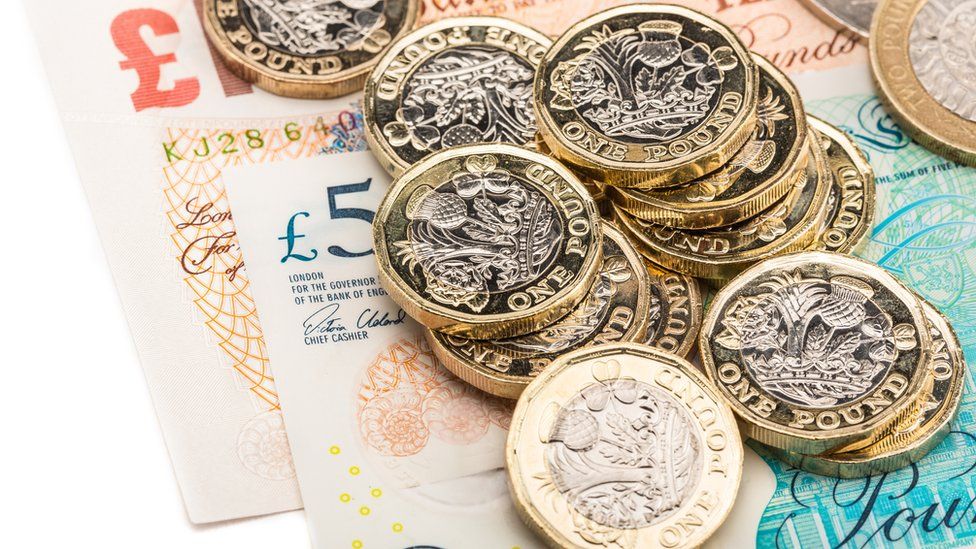ARTICLE AD BOX
 Image source, Getty Images
Image source, Getty Images
The pound is holding steady above $1.13 after Boris Johnson dropped out of the Tory leadership race, leaving Rishi Sunak clear favourite to become PM.
Sterling jumped as Mr Johnson dropped out but then gave up most of the gains.
On Friday it fell as low as $1.11 amid continued political uncertainty and fresh warnings about the UK economy.
Former chancellor Mr Sunak is now the only candidate backed by more than 100 Tory MPs, the level required to take part in the ballot of party members.
Mr Johnson, who claimed he had the support of 102 MPs although only 57 MPs did so publicly, dropped out after saying he would be unable to unite his party.
Commons Leader Penny Mordaunt remains in the race but is some way off securing 100 backers. The deadline for her to do so is 14:00 on Monday.
Last month, sterling plunged to a record low against the dollar and government borrowing costs rose sharply in the aftermath of Liz Truss's mini-budget last.
Investors were spooked after then-Chancellor Kwasi Kwarteng promised major tax cuts without saying how they would be paid for - something Mr Sunak warned would happen during this summer's Tory leadership contest.
Mr Hunt - who is backing Mr Sunak - is due to set out his economic plan for taxes and spending on 31 October, although there are reports it could be delayed due to the leadership race.
Why does a falling pound matter?
A fall in the value of the pound increases the price of goods and services imported into the UK from overseas - because when the pound is weak against the dollar or euro, for example, it costs more for companies in the UK to buy things such as food, raw materials or parts from abroad.
If businesses pass on those higher costs to customers, a weaker pound can help push up inflation - the rate at which prices rise.
Also, for Britons travelling overseas, changes in the pound's value affect how far their money will go abroad.
Sterling has also been under pressure recently due the strength of the US dollar.
However, the pound's weakness in recent weeks has been most tied to mounting concerns about the outlook for the UK's economy and public finances.
The official rate of inflation rose to 10.1% last month and is expected to climb further.
The UK is also borrowing billions of pounds to limit energy bill rises for households and businesses.
Borrowing - the difference between spending and tax income - was £20bn in September, up £2.2bn from a year earlier, the Office for National Statistics (ONS) said.
It was the second highest September borrowing since monthly records began in 1993.
The Institute for Fiscal Studies think tank predicted borrowing this year could reach £194bn, almost double the figure previously forecast by The Office For Budget Responsibility (OBR).

 2 years ago
39
2 years ago
39








 English (US) ·
English (US) ·